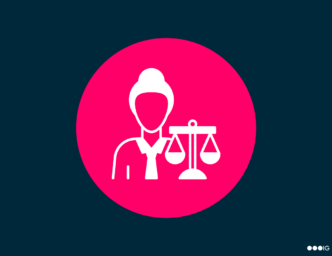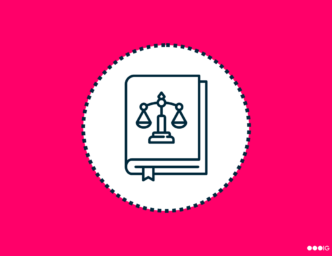Ever since ChatGPT entered the public domain in November 2022, organizations have been wondering how it will impact their operations and business practices. As questions arise regarding how employees will interact with generative artificial intelligence (AI) and use it to optimize job functions, similar questions are aimed toward ChatGPT and how different industries can use it in their hiring practices. The legal profession is no different.
What Is ChatGPT?
ChatGPT is a tool that possesses a generative pre-trained transformer (GPT)—otherwise known as a language model fueled by deep learning algorithms—to generate sophisticated, original, and human-like text responses. It’s become one of the hottest technologies discussed in the scope of how people work this year.
Launched by OpenAI, GPT 1 and 2 were considered testing experiments for the algorithm until GPT 3.5 and GPT 4 were introduced to the public. As of 2023, the AI can pass the U.S. bar exam, score exceedingly well on the SATs, and produce one-of-a-kind artwork.
ChatGPT has the potential to revolutionize hiring practices, legal services, and society in general if used correctly. But a recent Goldman Sachs report in March 2023 predicted that lawyers and administrative staff were at the greatest risk of becoming redundant through increased use of generative AI. Instead of viewing this novel technology as an “us vs. them,” it needs to be embraced as the next generation in how we work alongside technology.
RELATED: We Asked Recruiters How They Use ChatGPT for Recruiting
Opportunities for ChatGPT in Hiring Legal Talent
According to analysts at Thomson Reuters, “tools such as ChatGPT have a future with corporate attorneys, who believe that such tools can and should be leveraged for legal work.”
For legal hiring, the benefits of ChatGPT can be extended throughout the entire hiring process—beginning with drafting the initial job description to finalizing the hiring contracts.
1. Drafting Role- or Situation-Specific Interview Questions
ChatGPT has the ability to take interview screening questions to a new height. Instead of asking generalized questions, ChatGPT can be prompted to generate interview questions based on an individual’s job function, title, or background experience.
In addition to prompting the tool for a general query, such as “compile a list of 15 questions for an interview with a corporate attorney,” ChatGPT can be modulated for more specific behavioral questions, competency tests, and evaluations of situational judgment. This offers a chance to ask more pertinent questions that give hiring managers an opportunity to level up their interview practices.
2. Sourcing Ideal Candidates
ChatGPT can optimize the search for new employees by cutting down on redundancy and better aligning hiring teams with right-fit candidates. Keywords for job descriptions can be enhanced through ChatGPT and specific to your unique needs.
For example, instead of Googling, “keywords for a legal secretary job description,” ChatGPT could be prompted with a situational query such as, “Generate a list of keywords for [insert job description] that can be used to find a candidate for the position. Act like an expert in this field and include keywords outside of the job description.” The results from ChatGPT are comprehensive and can take some of the guesswork out of keyword optimization.
A unique function of ChatGPT is its capacity for Boolean search strings, which are common prompts used by recruiters to find candidates in a database. By incorporating Boolean operators—AND, OR, or NOT—ChatGPT can limit, broaden, or better define a query-based search.
Boolean search strings are especially helpful when it comes to candidate searches. When a role has specific search criteria, it can be hard to delineate candidates from each other on LinkedIn. But with Boolean search logic, you could insert a situational prompt such as, “Create a Boolean search string for LinkedIn to identify a a paralegal with experience in technology law. The paralegal should be certified in [insert state].”
This targeted search allows hiring managers to source better-fit candidates for their unique needs.
3. Candidate Communication
Although candidate communication always benefits from a human touch, administrative work can be streamlined so hiring managers can focus on better candidate communication. For example, ChatGPT can organize an upcoming meeting or agenda by providing it with a list of discussion topics, issues, and questions to discuss.
4. Marketing for Open Positions
ChatGPT can draft social media posts and ads to promote legal job listings based on keyword prompts to cut down on communication that is less personalized. However, ChatGPT isn’t aware of many regulations around advertising. The employees still need to review any materials generated by ChatGPT to ensure compliance and professional conduct.
5. Screening Potential Candidates
ChatGPT is helping recruiters better screen potential candidates by helping them understand the nuance of the role they’re hiring for. Recruiters can prepare for candidate screenings by sampling queries into ChatGPT, such as, “What does a successful legal assistant do in their role? What soft skills should a legal secretary possess? Does my legal secretary need any certifications to work in [insert state]?”
Instantly the recruiter is equipped with role-specific information that helps them ensure a candidate is truly a good fit.
RELATED: Can ChatGPT Write a Good Job Description? We Dig Into If It Can
The Business Impact of ChatGPT on Hiring Legal Talent
The reality is that generative AI isn’t going anywhere. According to Stanford’s AI Index Report, investments in AI passed $94 billion since 2021. Analysts estimate AI will add 1% to the U.S. GDP by 2030. Goldman Sachs boldly predicted that the growth in generative AI will mirror the trajectory of past computer and tech giants such as Google.
Just as the world shifted from on-premise computers and hardware to cloud-based technology, a similar fast-paced growth of AI is expected to reshape the world. But, alongside that growth comes understandable concerns about the implications of this novel technology on legal hiring from a compliance and ethical standpoint.
Accuracy and Bias Risk with Generative AI
ChatGPT is a groundbreaking step forward, but it isn’t without limitations. AI knowledge bases are only as good as the information upon which they’re trained. ChatGPT was trained on data sets available through 2021. These datasets are pulled from the web, where information is known to contain inaccuracies or personal bias.
This bias has the potential to manifest in the types of information offered in response to queries. Also, if ChatGPT is consulted in the employee decision-making process, it could result in discrimination claims or compliance issues based on local laws that require notice of the use of AI in certain employment decisions.
With respect to legal hiring, recruiters and hiring managers should not rely solely on ChatGPT for information. ChatGPT offers a starting point by providing the necessary information, but it is up to employers to independently review and fact-check the information for accuracy or obvious bias. With this in mind, companies looking to deploy ChatGPT in their hiring processes should take time to establish internal policies and guardrails outlining the extent employees can leverage ChatGPT information in connection with their work, especially with legal hiring.
Confidentiality and Data Privacy
The final item to consider when pursuing ChatGPT for legal hiring is how to maintain confidentiality and data privacy for employees and candidates.
Employers should think critically about whether to put employee data into a tool like ChatGPT, given laws that cover the confidentiality of client or customer data. Once again, internal policies are critical to ensure employees don’t accidentally share proprietary or confidential information when conducting queries and “conversations” with ChatGPT, especially when it comes to legal hiring.
Using ChatGPT When Hiring Legal Talent Needs Balance
We are in the early stages of incorporating ChatGPT into the global lexicon, let alone adopting it for widespread corporate use. With that said, the general consensus from organizations beginning to use this powerful tool for hiring practices is that ChatGPT is a great starting point.
As generative AI continues to evolve, the ways we can leverage it to improve hiring practices, streamline recruitment, and target better-fit candidates will emerge. But, as with all new exciting technologies, organizations are encouraged to explore the tool with caution and the appropriate internal guidelines.
Looking to Hire Legal Talent?
We've been in the staffing world for over 20 years, filling over 50,000 positions last year alone. Let us know your hiring needs below. Questions? Call us toll-free: 855-485-8853


 by Patrick Glynn
by Patrick Glynn



 by Anna Morelock
by Anna Morelock 


 by Brita Long
by Brita Long